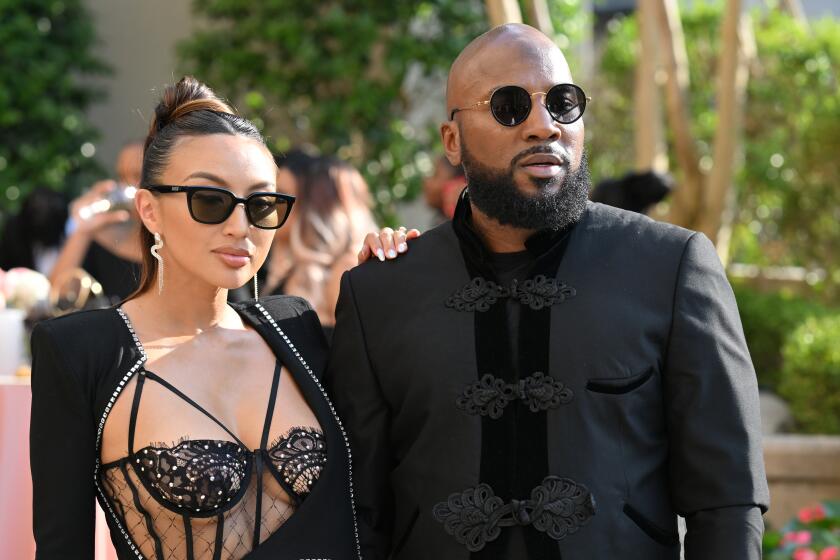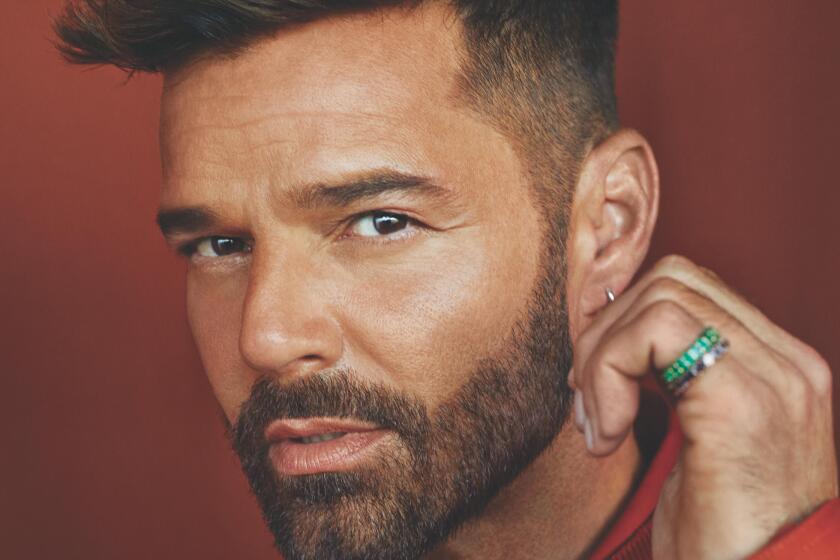Called to star in Asia
CALL it “Korean American Idol.”
Soo-Man Lee’s search for the next big Korean star brings him to Los Angeles to watch young performers flip their hair, swivel their hips and do their best Christina Aguilera and Justin Timberlake impressions, almost entirely in English.
“The language doesn’t matter. We can teach them that,” Lee said. “What we need is people who understand American culture. That is what will make them stars in Asia.”
Lee’s view may seem counterintuitive, but it appears to work.
For the past several years, Lee’s company -- he’s president of Seoul-based S.M. Entertainment -- has held open-call auditions in 11 North American cities, including Los Angeles and Garden Grove, for performers who can sing, act or model their way to stardom in Asia.
So far, he’s discovered almost half a dozen U.S.-born entertainers who have become celebrities in Korea, feeding that country’s demand for stars who look like them but have Britney Spears’ dance moves or Eminem’s swagger. Korean youth may follow Hollywood movies, wear Gap jeans and download singles from iTunes, but “they just can’t rap. There are just things that only Americans can do,” explained Francis Hur, president of SkyLight Entertainment, a Los Angeles company that promotes Korean music.
So people like Brian Gintaek Joo, who was born in Absecon, N.J., but is a now a top R&B; singer in Korea, and Tony An, who DJ’d in New York clubs before joining the influential hip-hop group H.O.T., can fill the cultural void while looking Korean enough to blend into Seoul.
The tryouts speak volumes about the effects of globalization on Asian culture.
Korea, once known as a tight-knit society that was suspicious of outsiders, now embraces performers who look Korean but often don’t speak the language very well. And Asian American singers and dancers who dream of being the next Beyonce or Usher may have a better chance of reaching stardom in Korea -- even though it’s a place where many of them would feel like outsiders.
“It’s an acrobatic mental exercise of globalization of mind-bending proportions,” said Timothy Tangherlini, a UCLA professor who specializes in Korean culture. “There’s been a strange inversion, an almost fetishization of the foreign where before it was almost shunned. The street cred in Korea, the new types of voices and styles, are all coming from L.A. now.”
Korean pop culture’s reach
The lines for a recent S.M. audition snaked out the door of an office building on Wilshire Boulevard in Koreatown and into the indoor golf driving range next door. S.M. volunteers shouted to maintain order among teenagers practicing their dance moves or warming up their voices while puzzled middle-aged men carrying golf clubs cut their way through.
Many of the contestants were fans of “K-pop,” the nickname of popular Korean music which is a distant cousin of early 1990s music and features the same style of soaring ballads and catchy dance tunes as ‘N Sync or the Backstreet Boys.
Korean popular culture dominates much of Asia, where performers like Rain sell out stadiums from Thailand to China. When Korean soap operas travel to Tokyo for press junkets, the scene resembles something out of Beatlemania.
Both K-pop and Korean soap operas have gained a foothold in the United States, which explains why the Mexican Irish Bryanna Sandoval drove from Norco for the auditions. (S.M. executives ask that contestants be Asian, although not necessarily Korean.)
“I just like the music so much I thought, why not give it a try?” said Sandoval, who estimated that a quarter of her iPod was dedicated to Korean songs, even though she doesn’t speak the language.
Sandoval, however, did not get a tryout.
Standing several spots in back of Sandoval was Katherine Ko, an 18-year-old from La Canada Flintridge, who dances in a group with several of her friends. When asked about their favorite singers, the girls quickly rattled off American pop staples like Beyonce and Missy Elliott, and showed off dance moves influenced by hip-hop rather than Asian style.
Ko, an aspiring actress, said she came to the tryouts because opportunities for Asian Americans are limited in America. You’ve got Sandra Oh, the “Grey’s Anatomy” star, and “that’s it,” said Ko.
“It’s very discouraging because you can’t be original in America, they already know what parts they want you to play,” Ko said.
Sally Oh felt the same way. The 20-year-old Cypress College student wasn’t aware of the auditions until her mother saw an ad for them on Korean television and urged her daughter to sign up. Oh’s favorite singers are Toni Braxton and Mariah Carey, and she only occasionally listens to Korean pop.
Invitation to return
Lee and other S.M. executives who had flown in from Korea for a second set of tryouts, held a week later at a park on Olympic Boulevard in Koreatown, sat in a row in front of the stage, “American Idol” style.
Thousands of viewers came from a nearby street fair to watch. Oh, dressed in a long black evening gown, belted out Whitney Houston’s “I Have Nothing” before thanking the crowd in Korean and walking offstage with the poise of a polished performer.
But backstage, Oh let her emotions show. She ignored the hamburgers and hot dogs volunteers were grilling and watched the other performers, her hand clasped across her mouth, before she began analyzing her performance with some friends.
When the winners were finally announced, Oh finished out of the top five. She was disappointed but called it a good learning experience. Since she was unsure if she wanted to go to Korea anyway, she said, perhaps it was for the best.
It turned out that Lee saw enough of Oh and several other performers to ask them back for yet another audition.
He believes that S.M.’s growth is tied to bilingual performers -- stars who can make it big in Korea and then possibly back in America. The singer known as BoA, for example, perhaps S.M.’s biggest performer, is Korean but speaks Japanese fluently and is a megastar in both countries. “We need more English speakers. America is the world’s biggest market,” said Lee, who spent several years in the early 1990s studying economics at Cal State Northridge.
While Oh waits for her callback, she’s been mulling over the possibilities. She speaks Korean well but says she has a tough time following the Korean newscasts because the anchors talk too fast. “It would be like that in Korea all the time,” she said.
Still, Oh admits the idea of having a career in Korea is appealing, especially because her opportunities in the United States may be limited.
“I’d rather be a performer in the U.S. But if there is potential in Korea, I’d have to do it,” she said. “But of course I’d come back eventually.”
More to Read
The biggest entertainment stories
Get our big stories about Hollywood, film, television, music, arts, culture and more right in your inbox as soon as they publish.
You may occasionally receive promotional content from the Los Angeles Times.







